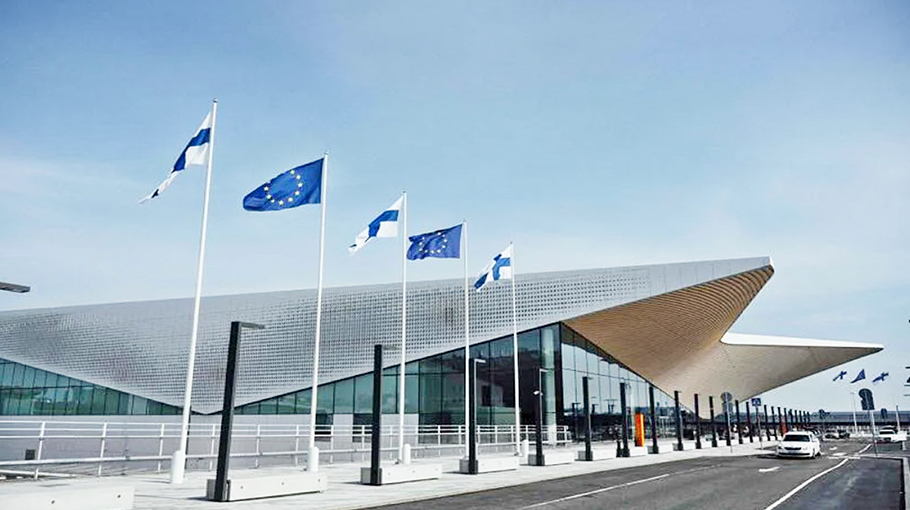EU to discuss visa ban for Russians, training of Ukraine troops


European Union defence and foreign ministers, meeting in Prague this week, will discuss options for setting up an EU military training mission for Ukrainian forces and also look into calls by some members to ban Russian tourists from entering the bloc.
Several EU countries have been training Ukrainian troops for a while, mainly enabling them to operate weapons Western nations are delivering to Ukraine to help its fight against Russia’s invasion.
It is not clear yet where an EU training programme could be based and what mandate it might have, EU diplomats said ahead of the defence ministers’ meeting on Monday (Aug 29) and Tuesday.
The bloc’s foreign policy and security chief, Josep Borrell, has given few details of his plans so far, merely stating such a programme would not be based in Ukraine but in neighbouring countries.
At a joint session with UN and Nato representatives, defence ministers will also discuss the future of the EU’s suspended training mission in Mali and the UN peacekeeping force Minusma, as concerns are growing over an increasing Russian presence in the West African country.
The six-month-old war in Ukraine remains a foreign policy priority for the European Union and when the bloc’s foreign ministers take over the meetings in Prague on Tuesday, a proposed visa ban for Russians will be at the top of their agenda.
The Czechs, who currently hold the EU’s rotating presidency, are pushing for an EU-wide ban on visas for Russian tourists, an idea supported mainly by the Baltic countries.
They argue that "business as usual for Russian tourists in time of aggression is inappropriate".
EU sanctions require unanimity among all 27 member states. One country - Hungary - maintains friendly ties with Moscow and could veto a bloc-wide visa ban.
On top of that, several EU countries, among them France, Germany and Portugal, insist that Russian journalists and other civilians fearing persecution should continue to be allowed entry, arguing that barring them might breach EU rules.
And EU foreign policy chief Josep Borrell, who will chair the EU ministers' meeting in Prague, said he believed a prohibition on all Russians from entering Europe "is not a good idea".
The European Commission insists on the need for humanitarian access for dissident Russians, and says visa applications should be assessed individually and not under a blanket rule.
Lithuania has said that, if no EU-wide ban is agreed, it could seek a "regional solution" banning tourists, possibly including Latvia, Estonia, Finland and Poland.
Russians mostly enter the EU via the land borders of the five countries since direct flights between Russia and the bloc were suspended following Moscow’s invasion of Ukraine, according to Landsbergis.
The EU had in February restricted visas in certain categories for Russians linked to the Kremlin, including for officials, diplomatic passport holders and company bosses. But tourist visas were still permitted.
In mid-August, Estonia closed its border to more than 50,000 Russians with previously issued visas, the first country in the EU to do so.
Finland, which has Europe's longest border with Russia, will from Thursday slash the number of Russian tourist visa applications it handles to just 10 per cent of the usual 1,000 received per day. A flat-out ban based on an applicant's nationality is impossible under Finnish law.
That measure will have an impact. Because of EU sanctions closing European airspace to flights from Russia, Russians had massively turned to land travel through Finland to reach other European countries.
EU countries Latvia, Lithuania and Poland stopped issuing new tourist visas to Russians when the Kremlin's forces invaded Ukraine in late February.
Russian leisure travellers use Schengen visas normally valid across 26 EU and associated countries, including Switzerland and Norway.
The visas typically allow stays of up to 90 days in a 180-day rolling period.
Those 26 countries received around three million Schengen visa applications last year. Russians made up the biggest group, accounting for 536,000 of them.
Estonia wants EU rules to be changed to allow it to stop Russians with already issued Schengen visas, regardless of which EU country issued them.
Ukrainian President Volodymyr Zelensky called on the West earlier this month to impose a blanket travel ban on Russians, saying they should "live in their own world until they change their philosophy".
Ukrainian Foreign Minister Dmytro Kuleba has said: "Russians overwhelmingly support the war, cheer missile strikes on Ukrainian cities and (the) murder of Ukrainians. Let Russian tourists enjoy Russia then."
A furious Kremlin has reacted by calling Kyiv's appeal "irrational" and pledging retaliation.
An expert at the European Council on Foreign Relations think tank, Ms Marie Dumoulin, said the appeal to ban Russians from Europe contains "a dangerous error of analysis".
"Less than 30 per cent of Russians have a passport, and their top travel destinations are Turkey, Egypt and the United Arab Emirates," she said.
"A ban would have the exact opposite effect of what is being sought. By stigmatising Russians, it would fuel the Kremlin propaganda that, for years and especially since the offensive in Ukraine, has been decrying a supposed 'Russophobia' by Westerners."
The EU, she said, should retain links with Russian civil society and not "lock it away in a pen totally controlled by the regime".



